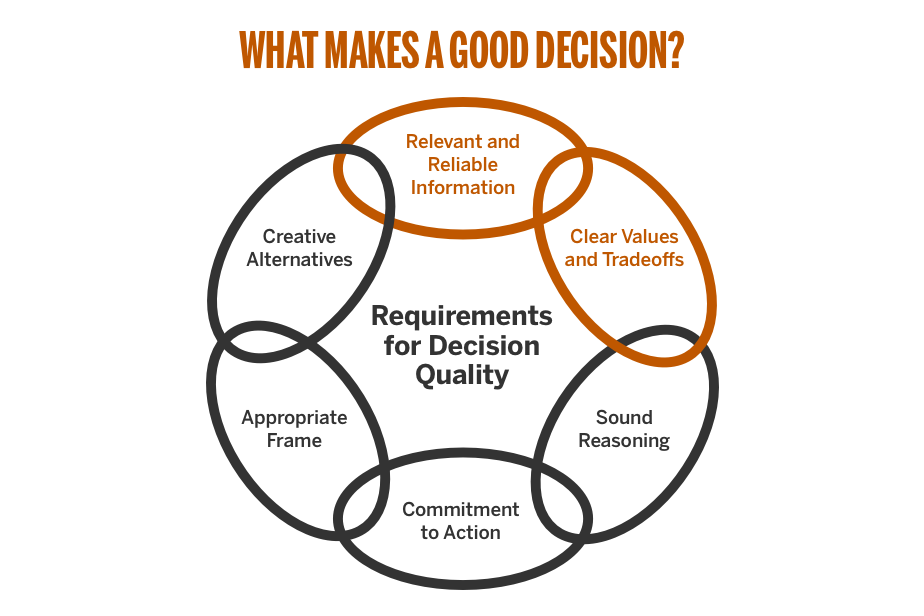Within our fast-paced world, the ability to make sound decisions is often the key to achieving success, in terms of personally and in your career. Yet numerous people find ourselves dealing with choices, whether it’s a small daily decision or a significant life change. Perfecting the art of effective decision-making can unlock new opportunities and boost our overall well-being. This article aims to demystify the decision-making process by examining ten tested techniques that can substantially improve your skills.
From the psychology behind excellent decisions to practical frameworks that help you assess options, we will delve into how you can make more effective choices under pressure. Whether you are a manager facing tough calls or someone navigating daily dilemmas, understanding the role of emotional intelligence and intuition in your decision-making can empower you to act with assurance and lucidity. Join us as we explore strategies to overcome decision fatigue, avoid mistakes like paralysis by analysis, and ultimately learn how to make decisions that lead to a satisfying life.
Techniques for Smart Decision-Making
One of the most crucial techniques for effective decision-making is to develop a structured framework to direct the methodology. This entails identifying well-defined criteria for judging options, prioritizing priorities, and considering potential outcomes. By using resources such as decision matrices or pros and cons lists, individuals can systematically analyze their choices. This approach not only clarifies the decision-making path but also minimizes confusion and helps avoid the hazards of emotional bias.
Another critical approach is to cultivate emotional intelligence. Recognizing your emotions and recognizing how they influence your decisions can lead to improved choices. By taking a moment to reflect on what you’re feeling and why, you can distill your instincts from the facts at hand. Incorporating mindfulness practices can enhance this aspect, allowing you to remain engaged and focused, leading to more precise and more empathetic decision-making.
Lastly, reflecting from past decisions is vital for enhancing future choices. Look back on previous outcomes, both good and bad, to grasp the factors that contributed to those results. This retrospective analysis can uncover patterns in your decision-making process that you can leverage for growth. Adopting a mindset of curiosity and openness to learning fosters resilience, allowing you to adapt and hone your abilities without the burden of regret.
Comprehending the Psychology of Choices
The choice-making process is greatly shaped by psychological factors that shape how we interpret options and weigh potential outcomes. One of the essential factors is cognitive biases, which can lead individuals to make irrational decisions based on limited information or emotional responses. For example, confirmation bias causes people to favor information that supports their pre-existing beliefs, often discounting contradictory evidence. Recognizing these biases is vital for perfecting the art of effective decision-making.
Emotional awareness also plays a vital role in making effective choices. Recognizing and controlling emotions can help individuals handle complex decisions, especially under stress. Those with high emotional intelligence are better equipped to handle pressure and understand the feelings of others, promoting more considerate choices. Including emotional awareness into decision-making can transform impulsive reactions into intentional actions that support long-term goals.
Finally, the environment in which decisions are made plays a role to the psychology of choices. Surroundings, social influences, and time constraints can all alter our ability to analyze effectively and make smart decisions. For example, decision fatigue can set in after prolonged periods of making choices, resulting in less than ideal outcomes. By being click here of contextual factors and creating a conducive decision-making environment, individuals can enhance their clarity and focus, culminating in better choices in general.
Overcoming Obstacles in Making Decisions

One of the most critical challenges individuals encounter in decision-making is the overwhelming feeling of pressure, especially when consequences are high. In times of urgency, it is tempting to rush into choices without carefully considering the implications. To combat this, you can employ techniques such as the power of pause, which promotes taking a step back to analyze the circumstance calmly. This short moment of reflection allows you to organize your thoughts, reduce anxiety, and frequently leads to more equitable and informed decisions.
Another frequent hurdle is decision fatigue, a mental phenomenon that occurs when we are faced with excessive choices throughout the day. As energy and mental clarity diminish, even simple decisions can feel incredibly taxing, leading to poor outcomes. To reduce decision fatigue, adopt daily habits that simplify your choices, such as prioritizing essential decisions early in the day or simplifying your options. This organized approach will help preserve mental clarity and ensure you reserve your cognitive resources for the key decisions.
Lastly, fear of committing to the wrong decision can paralyze individuals, preventing them from acting altogether. This fear often originates from the desire to achieve perfect outcomes and avoid potential regrets. To overcome this challenge, embrace a perspective that views decisions as chances for growth rather than risks. Additionally, consider the value of emotional intelligence in recognizing and managing your fears. By conditioning your brain to acknowledge that every decision—even those that do not yield the desired results—provides valuable learning experiences, you can approach decision-making with increased confidence and resilience.
